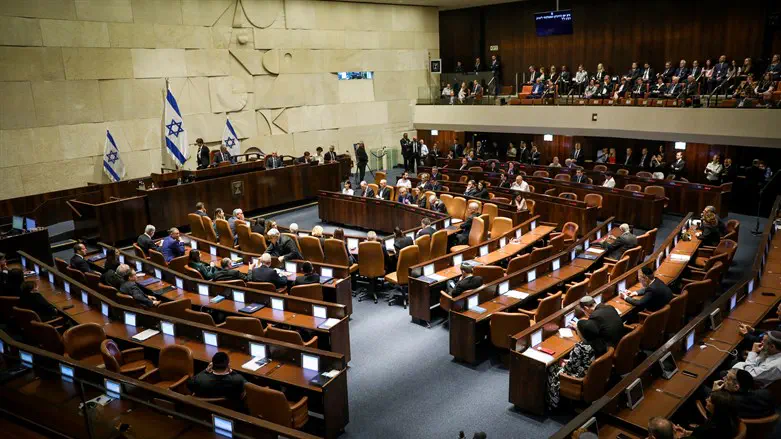
Israel's Anti-Defamation League has published the results of a new survey on the topic of democracy and Israeli society, revealing troubling statistics - including the finding that almost two out of every three Israelis feels that Israeli democracy is under threat (or worse).
The survey was conducted at the end of October, just days before national elections. As Israelis headed to the polls, the survey found, 82 percent thought that the country was either divided or extremely divided, especially on issues such as conversion, civil marriage, and the contribution of the haredi community to Israeli society in general.
36 percent of respondents said that they have no faith or no faith whatsoever in the judicial system. Among religious respondents, the figures were far higher - 54 percent of those who defined themselves as religious and 83 percent of those who defined themselves as haredi said they had no faith in the legal system.
Furthermore, just over a third (36 percent) of respondents said that they think the Supreme Court has too much power. Here, too, those who defined themselves as religious were more likely to see the Court as too powerful (59 percent) and 89 percent of haredim agreed.
Asked more specifically about divisions in Israeli society, 92 percent of respondents blamed politicians, 83 percent blamed digital and social media, and 80 percent blamed traditional media.
Meanwhile, the IDF continues to be perceived as the most unifying factor in Israeli society, with 64 percent of respondents saying that the armed forces contribute the most to unity among citizens.
On the topic of the integration of Arabs into Israeli society, 34 percent of respondents said that they do not view Arabs as an integral part of Israeli society. 41 percent of those polled said they see as legitimate the refusal of politicians to sit in the same coalition with Arab MKs; 32 percent thought it was illegitimate to hold such a position. 59 percent of respondents said that it is not legitimate for Israeli-Arabs to identify with the Palestinian "people," and a similar percentage thought that a law should be passed to ban the flying of the Palestinian flag within Israel.
When asked similar questions about the haredi community, a similar percentage of respondents answered that they do not see haredim as an integral part of Israeli society (33 percent). This was, however, an improvement from a year previously, when 44 percent of respondents expressed that view. Just 19 percent of respondents said that they thought it was legitimate to rule out haredi Knesset members as coalition partners; 58 percent of those polled said such a stance was illegitimate.
On the more general topic of state and religion, 38 percent of those polled said that they were in favor of official recognition of "non-Orthodox conversion" to Judaism; 65 percent of respondents said they were in favor of civil marriage in Israel; and 49 percent said they would like to see an egalitarian solution for gender-separate prayer at the Western Wall. Strikingly, 30 percent of respondents who defined themselves as haredi said they favored such a situation, although it was not altogether clear what respondents believed would be entailed.
Finally, those polled were asked if they thought Diaspora Jewry should be involved in internal decisions taken within Israel. 60 percent of respondents said they thought Jews living abroad should be either excluded from decision-making or only involved to a limited degree.
"Israelis feel more divided than ever, and see democracy as in peril," said Carol Nuriel, CEO of the ADL in Israel. "Israelis are concerned about their perception that their leadership is actually driving these divisions. Their faith in the judicial system is also abysmal. This survey reveals deep divisions in Israeli society that are only worsening, and it is for the country's institutions to take these findings to heart."